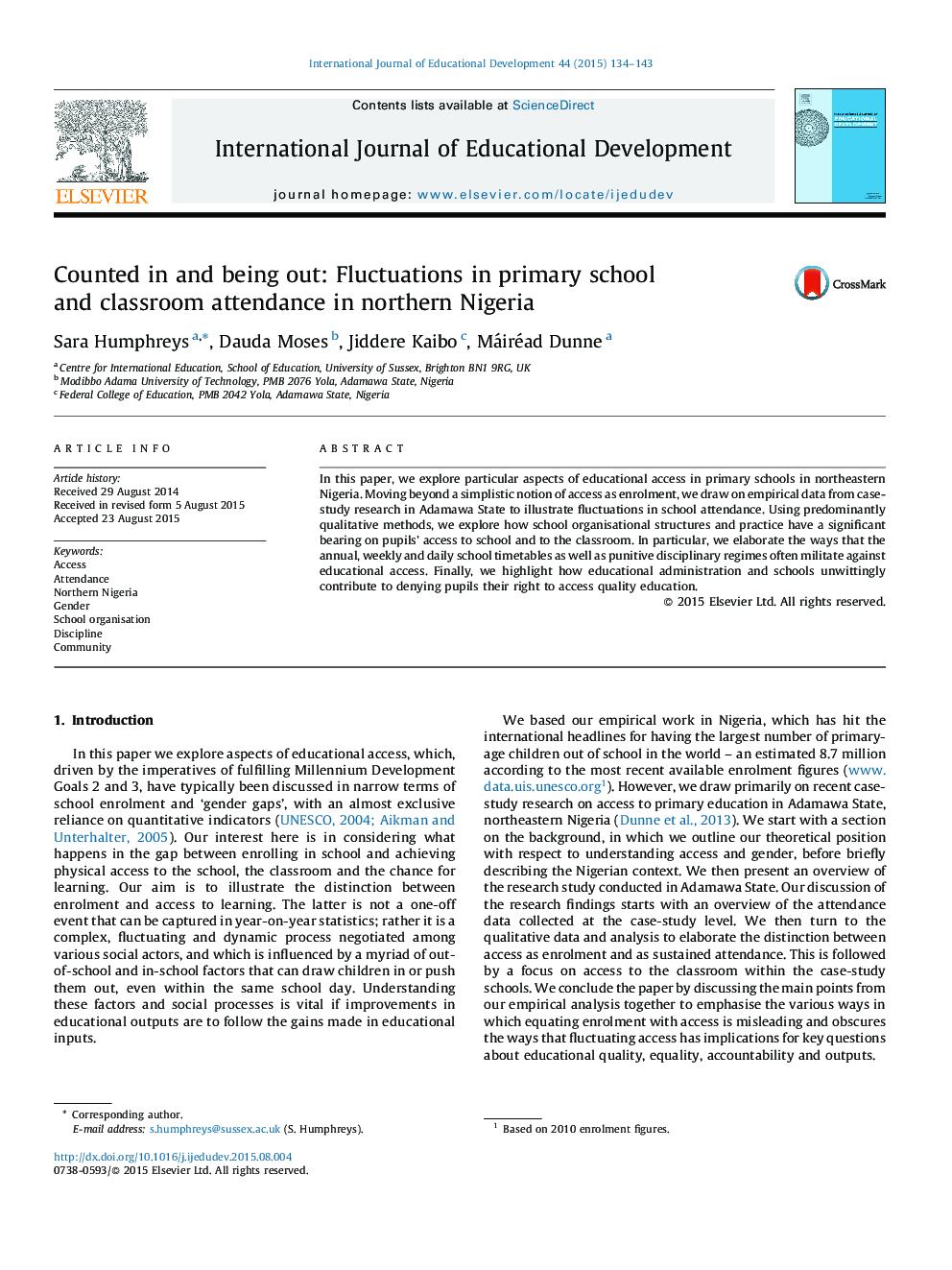| Article ID | Journal | Published Year | Pages | File Type |
|---|---|---|---|---|
| 356063 | International Journal of Educational Development | 2015 | 10 Pages |
•Four-stage conceptual model of access: enrolment, sustained attendance, access to the classroom, and then to the curriculum.•Enrolment and attendance data are unreliable and poor indicators of access to the curriculum.•This empirical study in northern Nigeria shows how access is produced collectively by educational administrators, schools and communities, in a dynamic social process.•The lack of fit between community rhythms and school processes impacts on sustained access.•School staff and educational administrators seem unaware of their part in denying pupils access.
In this paper, we explore particular aspects of educational access in primary schools in northeastern Nigeria. Moving beyond a simplistic notion of access as enrolment, we draw on empirical data from case-study research in Adamawa State to illustrate fluctuations in school attendance. Using predominantly qualitative methods, we explore how school organisational structures and practice have a significant bearing on pupils’ access to school and to the classroom. In particular, we elaborate the ways that the annual, weekly and daily school timetables as well as punitive disciplinary regimes often militate against educational access. Finally, we highlight how educational administration and schools unwittingly contribute to denying pupils their right to access quality education.
